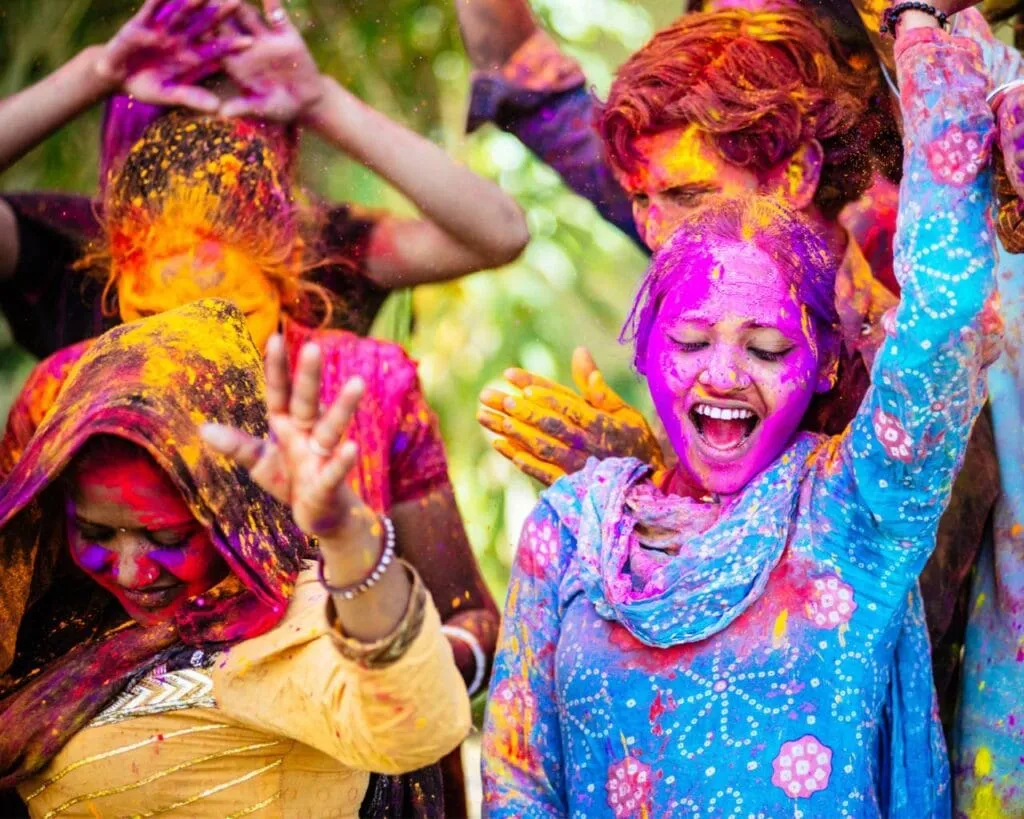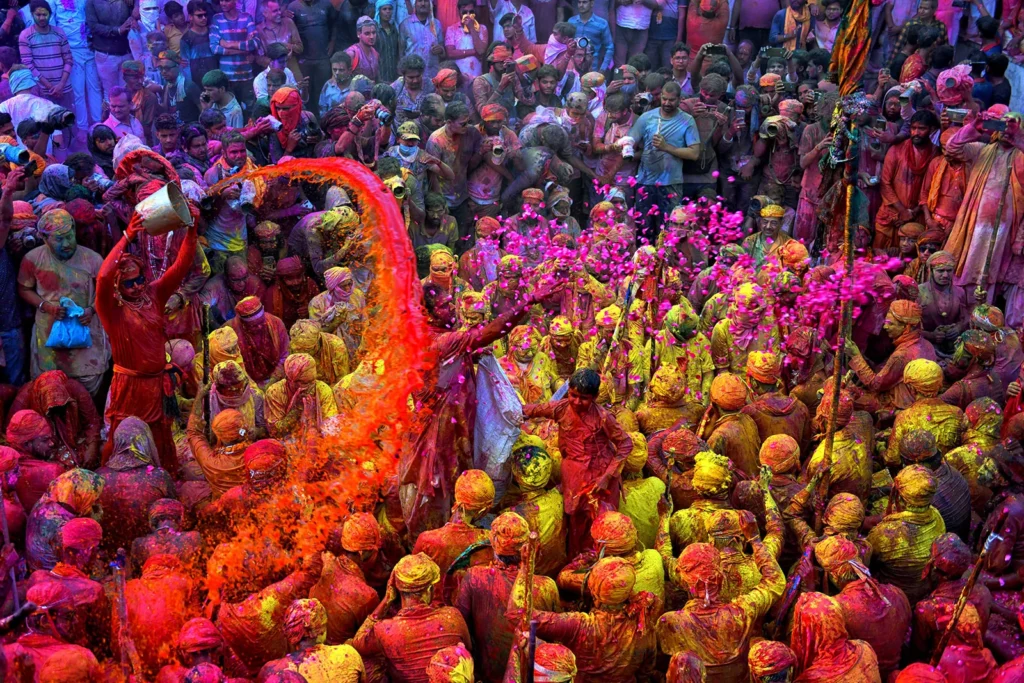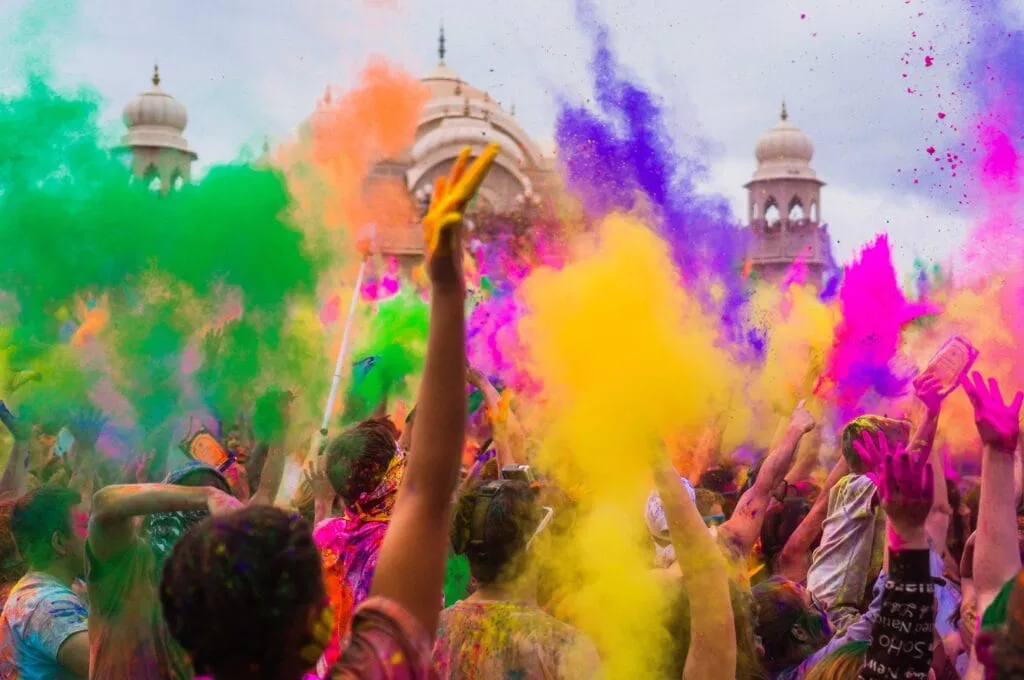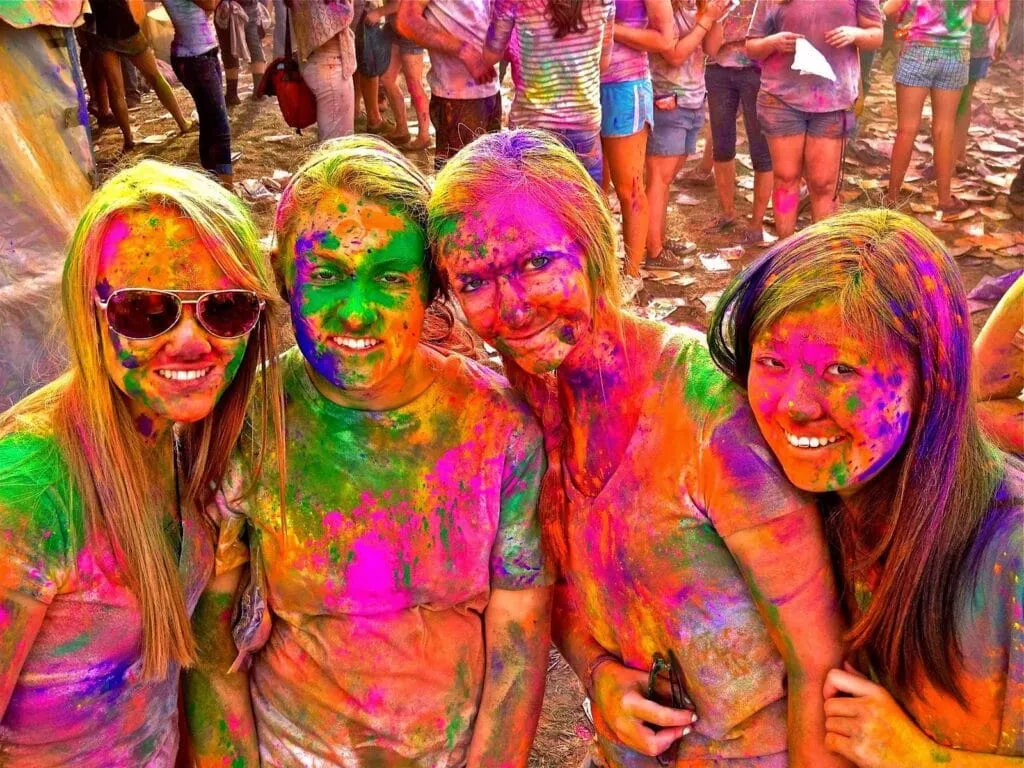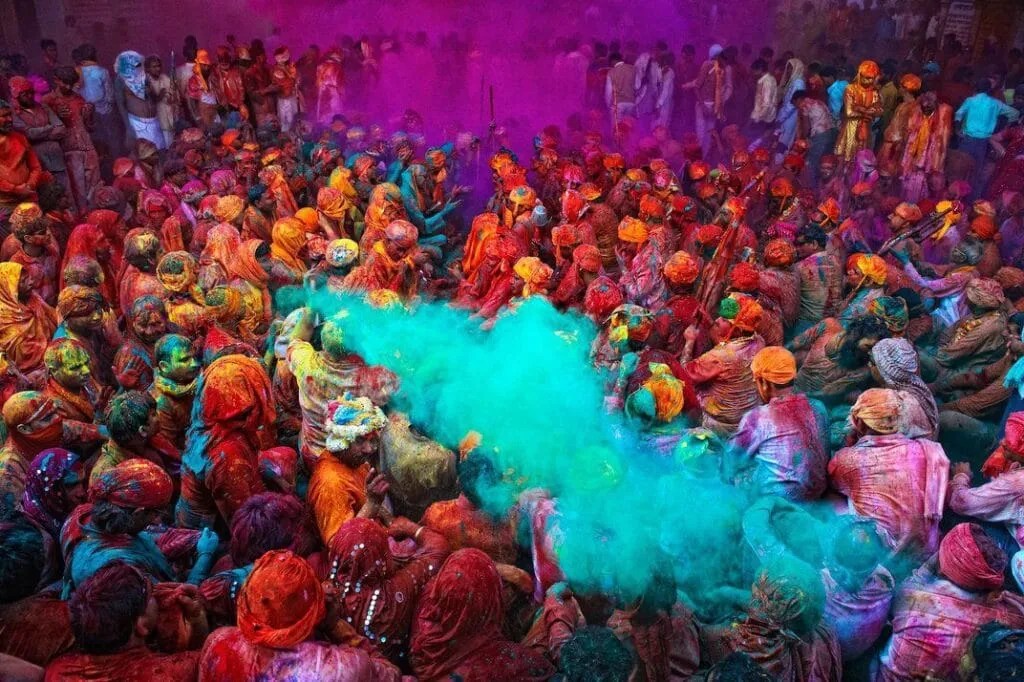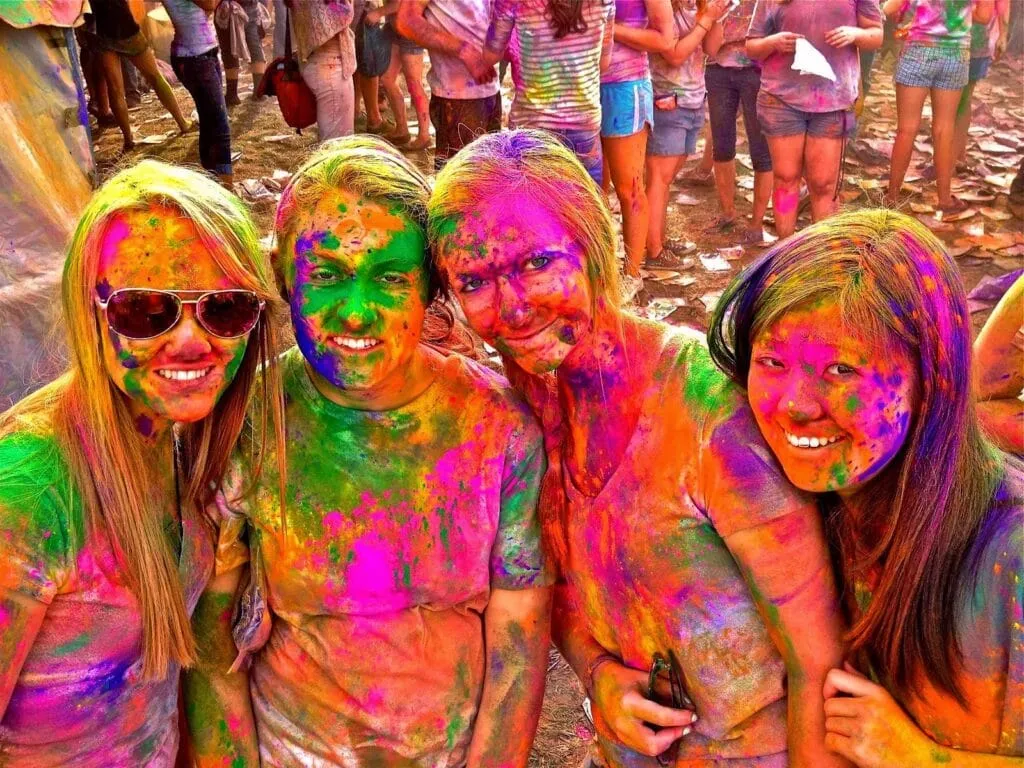
Holi, often referred to as the “Festival of Colors,” is one of India’s most vibrant and joyous celebrations. In 2025, Holi is set to be observed on Friday, March 14th, with festivities spanning across the country.
Significance and Traditions
Holi marks the arrival of spring and signifies the triumph of good over evil. The festival begins with “Holika Dahan” or Chhoti Holi on the evening of March 14th, where bonfires are lit to symbolize the burning away of negativity. The following day, known as Rangwali Holi, is characterized by exuberant gatherings where people smear each other with colored powders, dance to traditional music, and share festive foods.
Celebrations Across India
Each region in India brings its unique flavor to Holi celebrations:
Mathura and Vrindavan: Known for their week-long festivities, these cities celebrate with events like Lathmar Holi, where women playfully hit men with sticks.
Barsana: Famous for its Lathmar Holi, where women playfully hit men with sticks, reenacting a legend involving Lord Krishna and Radha.
Shantiniketan: In West Bengal, Holi coincides with Basanta Utsav, a celebration introduced by poet Rabindranath Tagore, featuring cultural performances and vibrant processions.
Safety and Environmental Considerations
While the festival promotes joy and unity, it’s essential to celebrate responsibly:
Use of Natural Colors: Opt for eco-friendly, natural colors to prevent skin allergies and environmental harm.
Water Conservation: In light of water scarcity issues, many communities advocate for dry Holi, minimizing water usage.
Respectful Celebrations: Ensure that participation is consensual, and be mindful of personal boundaries during festivities.
Holi 2025 promises to be a spectacular display of color, culture, and camaraderie, reflecting the rich tapestry of Indian traditions.



